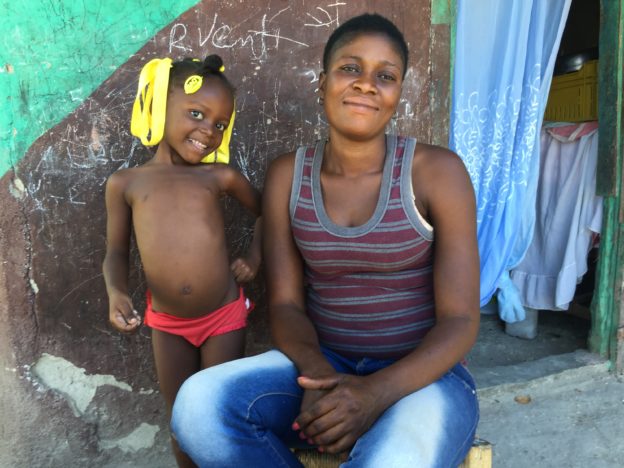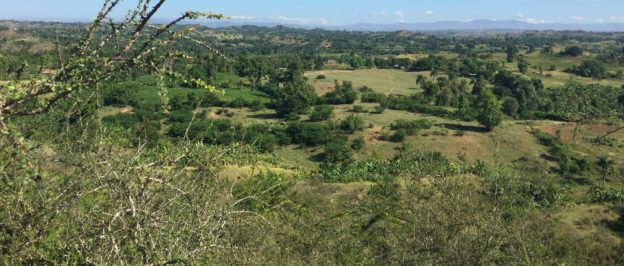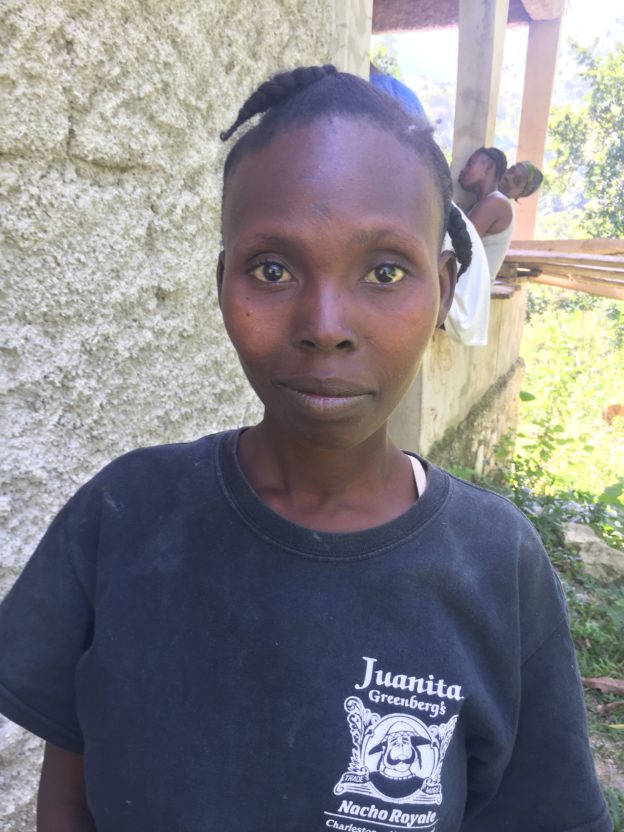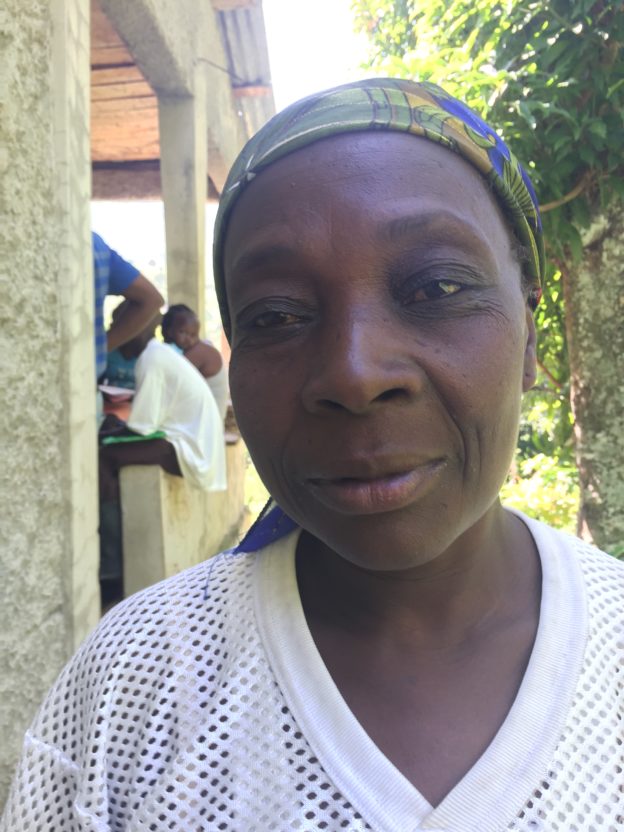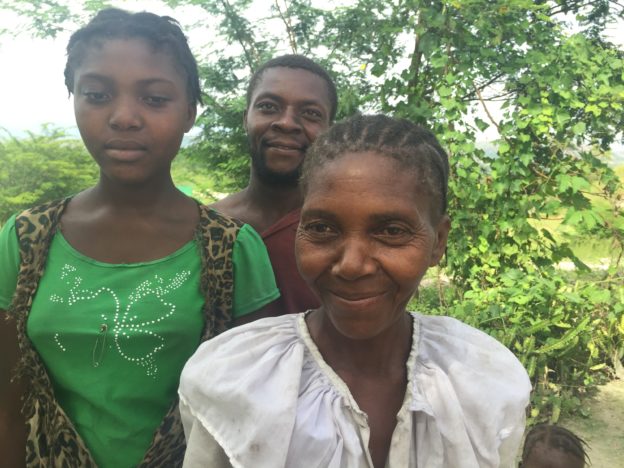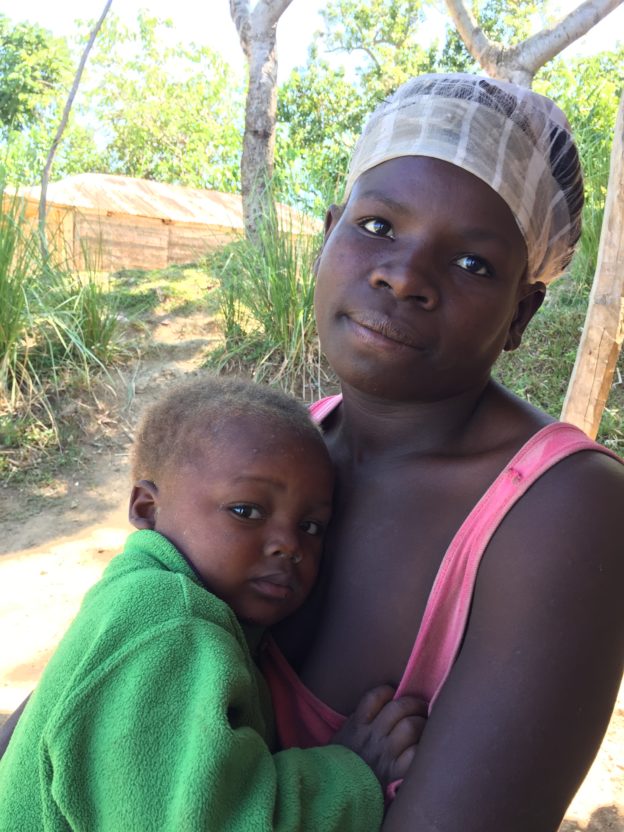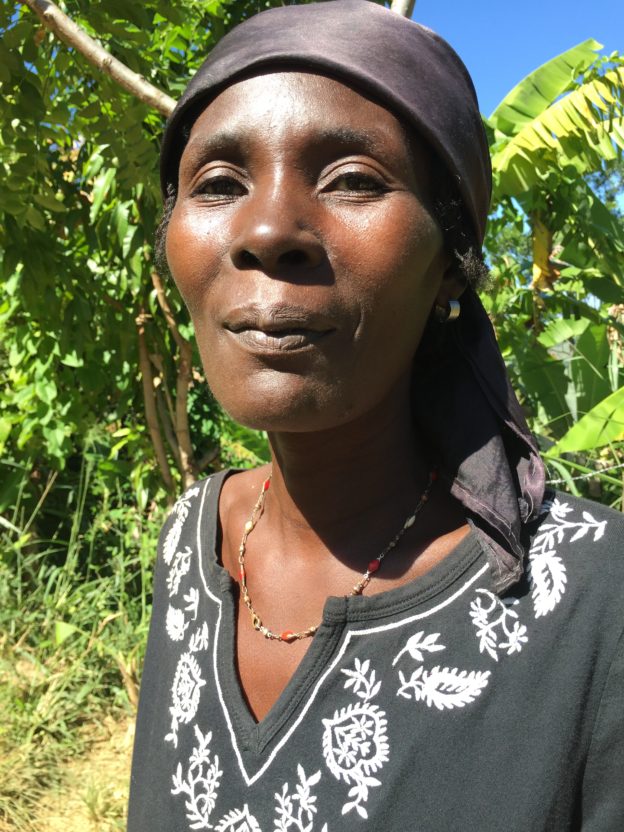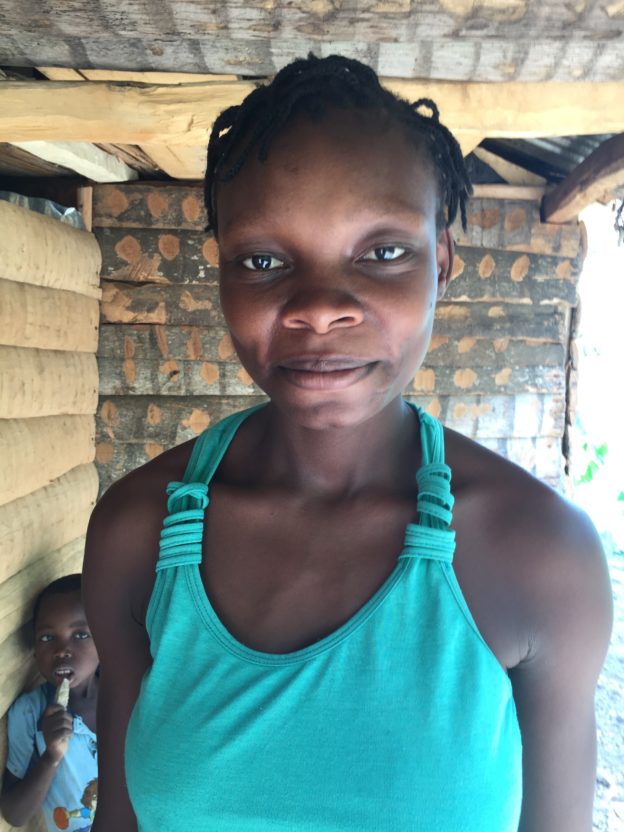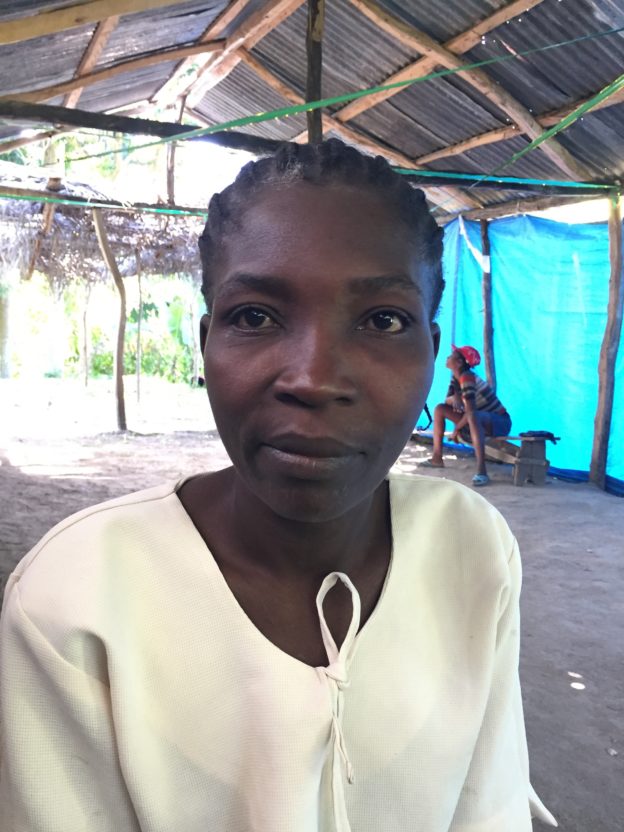Our team is once again selecting a group of families who are living in ultra-poverty so that we can bring them through the program. The selection procedure is long and complex. It can take three months to identify a new group.
The paperwork we use has evolved quite a bit in the ten years that we’ve been implementing the program, but the final step and the criteria it depends upon have changed very little. We call it “final verification.” A member of the CLM management team visits families whom our case managers have recommended for the program, and he verifies that they qualify. We take individuals with disabilities in the program if we think they are poor enough to need us and believe we can help them, but I want to set those cases aside for a moment to consider the more usual cases: women living in ultra-poverty who have at least one dependent.
One could define “living in ultra-poverty” in various ways. One could try to estimate a family’s income or its level of consumption. Accurate analyses of either might be a good way to determine whether a family is poor enough to need our help.
But we do neither. Instead we depend on a number of inclusion and exclusion criteria. Are there school-age children in the household whom the family cannot send to school? Does the family lack the livestock, farmland, merchandise, or other productive assets that could enable it to establish a reasonable livelihood? Most importantly: does the family regularly go a day or more without a hot meal?
The criteria might seem pretty clear, even though applying them can involve challenges. The women we speak to can be reluctant, for a lot of reasons, to tell us the truth. You have to establish a comfortable conversational setting with a rural Haitian woman who has never met you. In my case, as the team’s one foreigner, she may never have met anyone like me. And you have to work through any falsehood she might present.
But the criteria themselves can be hard to apply. A woman might have productive assets, but be dealing with significant hunger if, for example, she has more children than she can manage. The children could be in school if you visit the household early in the year, but the family may not have paid their tuition, and the parents might therefore simply be waiting for the school’s principal to send the children home. Or she might have a children whose father sends them to school even though the household is hungry because the mother has no means of her own and the father provides no other help.
One of our clearer criteria is that a family should have no outside support. If children or siblings from Port au Prince or abroad are supporting a woman, then we probably shouldn’t. But the more complicated question is whether we should accept a mother into the program if she is still living at home as her parents’ dependent. We don’t generally believe we should be in the business of taking over the role that a parent plays in a child’s life. Certainly not if the parent is handling the role capably, and maybe not even if the role presents a woman’s parents with significant challenges.
A day last week spent visiting potential CLM members presented four such cases, and each case involved a set of circumstances that gave me pause for thought.
The first whom I met was Maniose. She lives in a shack on a hill overlooking the river that separates Haiti from the Dominican Republic. A thickly planted, chaotic garden of plantain, manioc, and weeds planted along the slope leading up to the shack hides it from the footpath that winds around the small hill’s base. The house is guarded by two well-fed-looking dogs, which is unusual for the homes we visit. Not that there are dogs, but that the dogs appear well-fed.
Maniose lives in the shack with her mother, her own two children, and one of her brother’s children. The brother lives and works in the Dominican Republic, and sends his mother money to support her and his child. Maniose, on the other hand, cannot her send her school-age older child to school.
She does not face severe hunger. Her mother combines what her son sends her with what she can harvest from her own garden to take care of them. Maniose has two adult sisters, who live in their own homes nearby, and they are willing and able to offer their mother, their younger sister, and the children an occasional plate of food as well.
But she has no hope of her own income at all. She has no idea what she might eventually do to support her two children, whose fathers have already abandoned them. She owns neither livestock, nor farmland, and she has no idea of a small commerce she might be able to manage. What’s worse: her mother has no land either. The shack they inhabit and the garden that surrounds it are on land that belongs to her son-in-law, the husband of one of Maniose’s older sisters.
With two children with different fathers, both out of the picture, no resources or plans of her own, and a home situation that could deteriorate quickly if her sister and brother-in-law cease to get along, Maniose’s situation is fragile, so I approve her for our program.
The decision to approve Liline was easier. Like Maniose, she is a dependent. She and her three children live in her parents’ home. The parents are farmers, and between children and grandchildren they have eleven kids to look after. Some of those kids are adults, but all depend largely on them. And Liline worries that her father is aging and, so, that the burden is falling more and more on her mother alone. As we chat in her yard, we talk about her teenage and 20-something brothers, who sit on the other side of the home. They look eminently capable of pitching in, but Liline complains that they’d rather leave things in their parents’ hands.
Like Manoise, Liline has neither resources or a plan of her own. And she is already 26, with three children from three different fathers who do not help her or their kids. If we don’t intervene, her search for a man to help her establish a livelihood may lead her into ever-deepening poverty. I give her my OK.
Roselande, too, lives in a large household. She and her two young children live with her parents and seven other kids. They depend entirely on her parents. Her father is a farmer, and her mother is a “machann lòbèy” in the nearby market in Kas. That’s a little hard to translate.
The first word is easy enough. It means “merchant.” Roselande’s mother is a businesswoman. She goes to the market two to three times a week. A “lòbèy” is a commotion or a scene. But Roselande’s mother isn’t selling disorder. She’s selling food. In the rural Central Plateau, a marchann lòbèy is a woman who sells prepared meals right in the market. Many of them – Roselande’s mother among them – buy everything they need on credit from grocery sellers early in the day. They pay what they owe at the end of the day, and take their profit home.
I could not evaluate how much the mother was bringing home each week. I wasn’t able to speak with her. But I knew something else. Roselande’s older child is already being treated for severe malnutrition at a nearby clinic. The child receives a weekly supply of super-fortified peanut butter. So whatever the mother brings in isn’t enough.
Roselande is just 19, so I could leave her for her parents to help, but her lack of any idea how she might help her children and the malnutrition that one is suffering convince me. I give her my approval.
Natacha’s situation is similar in some ways. She and her baby live with eight other kids in her parents’ home. Unlike the other women, she is an earner in the home. She helps her father in their charcoal business. They find neighbors willing to have a tree turned into charcoal, and the father cuts down the tree and processes the wood into charcoal. Natacha then sorts it and bags it. The tree’s owner gets half of all they produce. They then bring their share to market for sale. They could sell it quickly by the sack to wholesale merchants, but can make much more by taking the time to sit in the market and sell it in small quantities directly to consumers. Natacha shares in that work. The business is much too small for a household as large as theirs, and the family often goes hungry as a result, so Natacha would seem to be a good candidate for the program.
But she is only sixteen, and seems nothing like an adult. In our conversation, she seems to have no interest in setting out on her own. Instead, she tells me that she wishes she was still in school. She was a sixth-grader when she became pregnant, and wanted to start seventh grade this year, but neighbors convinced her father that he’d be wasting his money by sending her.
I give her case some thought, but I decide to reject her for CLM. She’s still a child. She has a child already, it is true, but she doesn’t even want to be an adult just yet.
Wilny is one of the case managers who recommended her for the program, and we are together for the day because he is my guide. So I ask him why they didn’t recommend Natacha’s mother for the program, rather than Natacha. I haven’t met her, but her family seems poor enough for CLM.
This is where things get complicated.
Natacha’s mother is a market woman with a small loan from our sister organization, Fonkoze Financial Services. Her having received that loan reflects their evaluation that she is capable of more than an incoming member of CLM is capable of. Someone who qualifies for an FFS loan cannot, by definition, qualify for CLM. And the very fact that she has the loan shows that she is beyond most CLM members in at least one important respect. The kind pf loan that she receives requires that she be part of a group of five women who receive their loans together. She has enough of a standing within her community that she was able to find four other women willing to take out a loan with her. She is not, in other words, as socially isolated as many CLM members are.
But we know that the family is going hungry, and we know something else as well. She has already had to borrow money from a neighbor to keep up with her repayments. That, too, reflects social capital most CLM members lack, but it may also mean that credit just isn’t working for her.
Our team will not need to complete the selection of families for this group of CLM members until January, so I suggest to Wilny that he hold onto to the file and give it some time. Natacha will not be able to join the CLM program. My decision in that respect is final. Even our director, Gauthier, will not overrule a member of his team. But if the case managers and their supervisor decide that Natacha’s mother’s effort through credit is failing, they can consider helping her get out of the credit program to join CLM instead.
This will be complicated. We cannot make our program appear to be an alternative to taking out a loan. Who wouldn’t rather get stuff they don’t have to pay back? But just as our CLM team makes mistakes in our selection process, our colleagues in the credit program can make poor evaluations, too. If Natacha’s mother is bound to fail in Fonkoze’s credit program, we need to find a way to support her. Fonkoze’s job is to leave no family behind.
